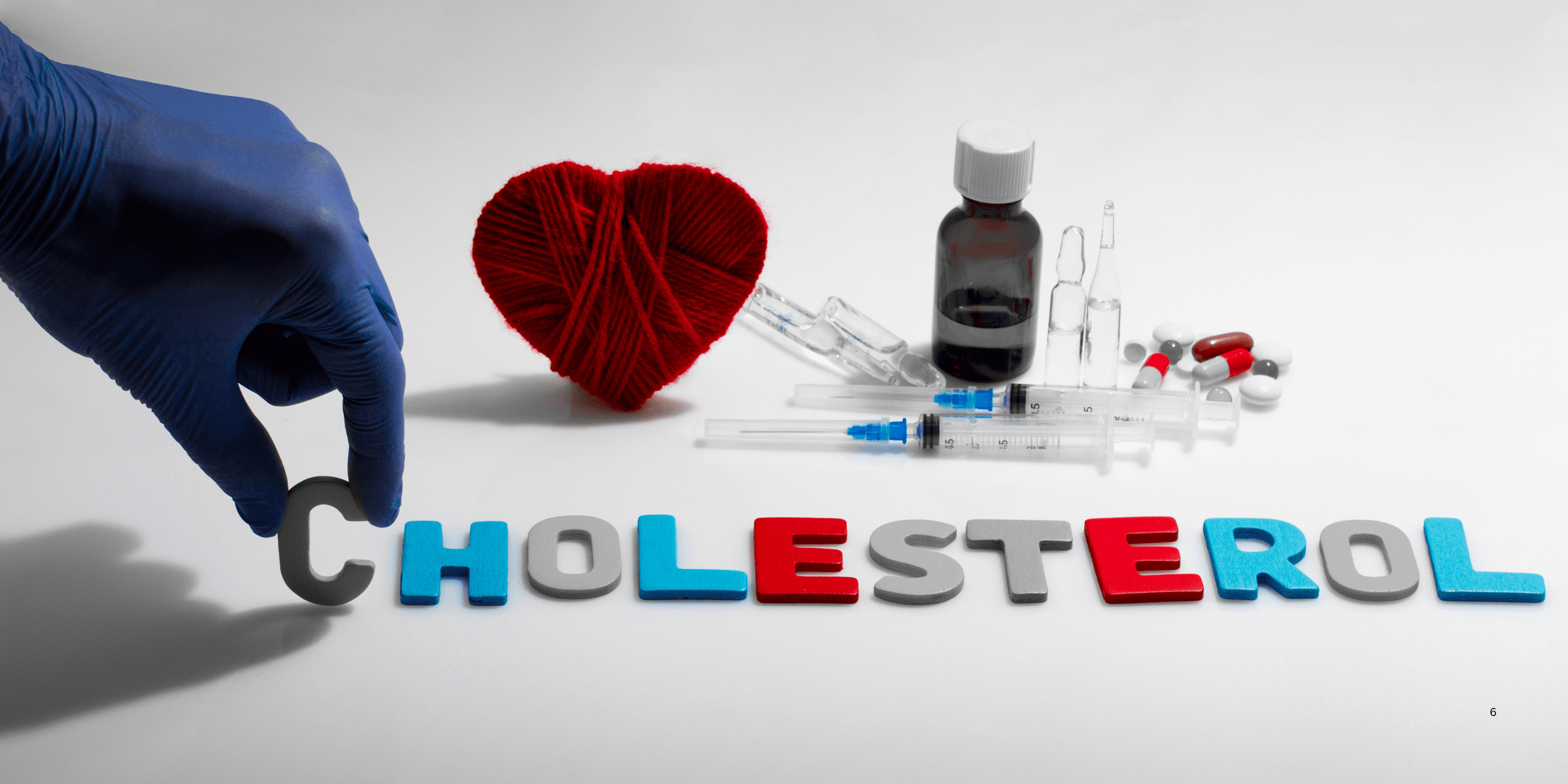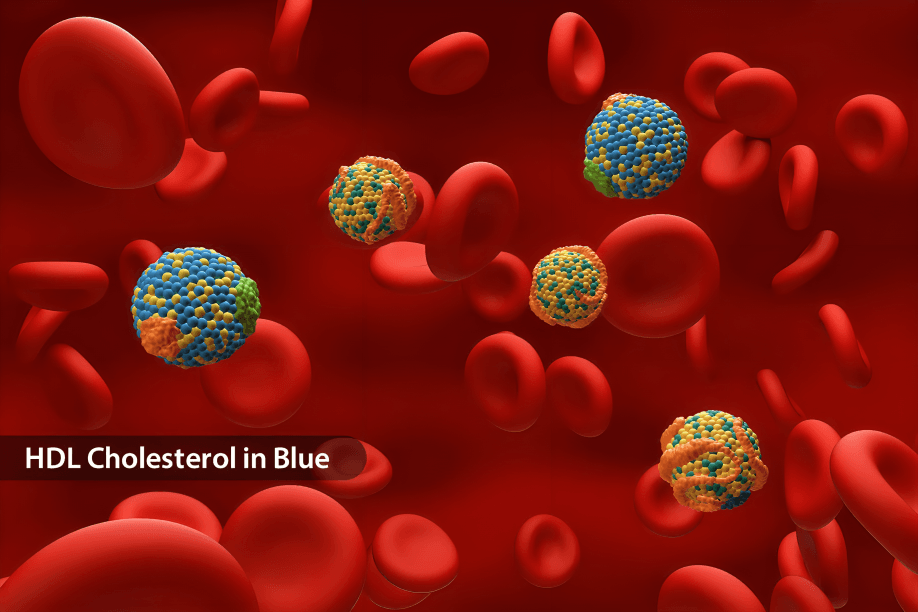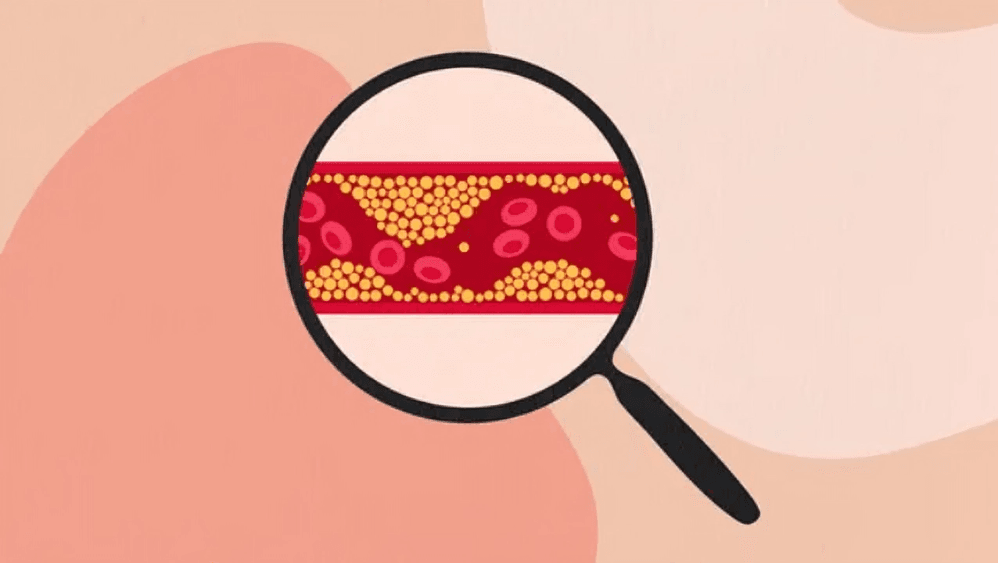
“
The link between high cholesterol & heart disease has been deeply studied for decades. Cholesterol plays a vital role in the body, but an excess—especially of the "bad" LDL type—can silently damage arteries, leading to life-threatening cardiovascular events. This relationship is not a myth but a medically acknowledged fact supported by science, doctors, and health organizations globally. 1
1
”
LDL cholesterol, often labeled “bad cholesterol,” builds up in artery walls, forming plaques that narrow blood vessels. This reduces oxygen-rich blood flow, raising the risk of heart attacks or strokes. 1
High cholesterol doesn’t cause symptoms, making it a silent threat. Many people only learn about their risk after experiencing a major heart-related issue like angina, a heart attack, or a stroke. 2

HDL cholesterol, known as “good cholesterol,” helps remove excess LDL from the bloodstream. Low HDL lets bad cholesterol build up, raising heart disease risk.
Diets rich in trans fats, saturated fats, and cholesterol-heavy foods like red meat and full-fat dairy can significantly increase LDL levels, directly influencing the progression of cardiovascular disease. 3
Smoking doesn’t just damage your lungs; it lowers HDL cholesterol and damages blood vessels, worsening the effects of high LDL and sharply increasing the likelihood of heart-related complications. 4
Genetics can influence how your body produces and processes cholesterol. Familial hypercholesterolemia causes high cholesterol from childhood and lasts for life. 5
Obesity is a major contributor to high cholesterol and heart disease. Excess body fat alters how the body handles lipids, causing imbalances in both LDL and HDL cholesterol levels. 6
Diabetes often goes hand-in-hand with high cholesterol. High blood sugar can damage blood vessels and worsen cholesterol-related plaque buildup, creating a double threat to cardiovascular health. 7
Men tend to have higher cholesterol levels earlier in life, increasing their heart disease risk sooner. Women’s risk rises sharply after menopause due to a drop in protective estrogen levels. 8

Physical inactivity contributes to weight gain, reduces HDL cholesterol, and worsens other heart disease risk factors. Regular aerobic exercise can reverse these effects and support long-term heart health.
The American Heart Association recommends checking cholesterol every 4-6 years for adults, or more frequently if there’s a family history or other risk factors for cardiovascular disease. 9
Cholesterol isn’t inherently bad. It’s essential for building cells and producing hormones. The problem arises when its levels exceed what the body needs, causing damage to arteries and organs. 10
People with high cholesterol are twice as likely to develop heart disease as those with normal levels, making cholesterol management one of the most important factors in long-term cardiac care. 11
Even lean people can have high cholesterol due to genetics, diet, or a sedentary lifestyle. A healthy weight doesn’t guarantee safe cholesterol levels or immunity from cardiovascular disease. 12
Consuming soluble fiber from sources like oats, beans, and apples helps reduce LDL cholesterol, acting as a natural tool to lower heart disease risk through diet without medication. 13

Inflammation caused by high cholesterol weakens blood vessels over time. This chronic irritation increases the chance of blood clots, which can abruptly block arteries and lead to sudden cardiac arrest.
The Mediterranean diet, rich in olive oil, nuts, vegetables, and fish, is associated with lower LDL cholesterol and reduced heart disease risk without requiring major lifestyle overhauls. 14
Over 90 million American adults have high cholesterol, according to the CDC. That’s nearly 1 in 2 adults at risk of developing serious heart issues if not treated or controlled properly. 15
Early diagnosis and lifestyle changes can reverse cholesterol’s impact. With regular monitoring, exercise, and diet changes, many people can lower their risk without needing lifelong medication. 16
Dr. Paul Dudley White, a pioneer in cardiology, emphasized that heart disease could largely be prevented through cholesterol control and healthy living—well before statins were introduced into medical practice.17


